Trump holds listening session with students on mass shootings
They shared emotional stories of their experiences during a “listening session.”
— -- Parents and students — including those impacted by the deadly mass shooting at a Parkland, Fla. high school — offered emotional stories of their experiences during a “listening session” with President Donald Trump Wednesday.
There were narratives that painted a painful portrait of some of the youngest victims of mass gun violence in America.
Their stories of the aftermath of those deaths, and of friends and teachers lost, provided the climax to a day focused on student action on gun policy reform. Students gathered in Washington D.C., held signs and spoke about the need for more gun safety laws as they marched down the National Mall toward the White House.
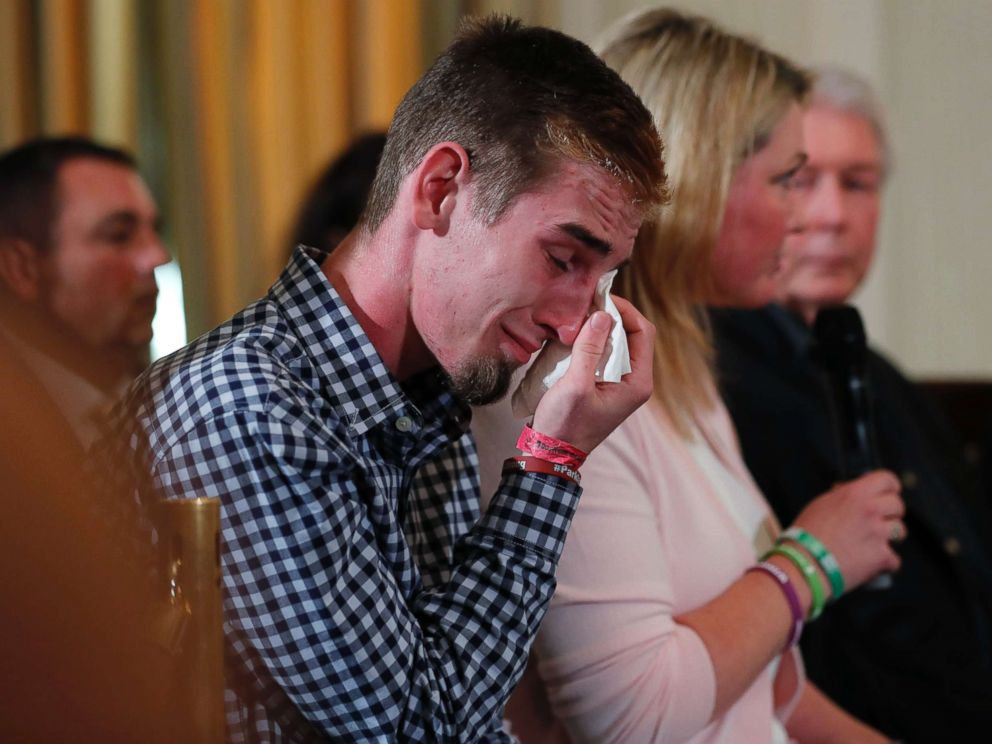
There was the story of Samuel Zeif, a Marjory Stoneman Douglas High School shooting survivor, who, through tears, told of frantically texting his loved ones and then realizing his brother was in a classroom on the floor above him, where the shooting was happening.
He learned that a good friend died in the attack. The next day, Zeif turned 18.
"I don't understand why I can still go in a store and buy a weapon of war," he said, sobbing.
He vowed to speak for the fallen and demanded action.
"Let's be strong for the fallen who don't have a voice to speak anyomore," he said. "And let's never let this happen again. Please. Please."
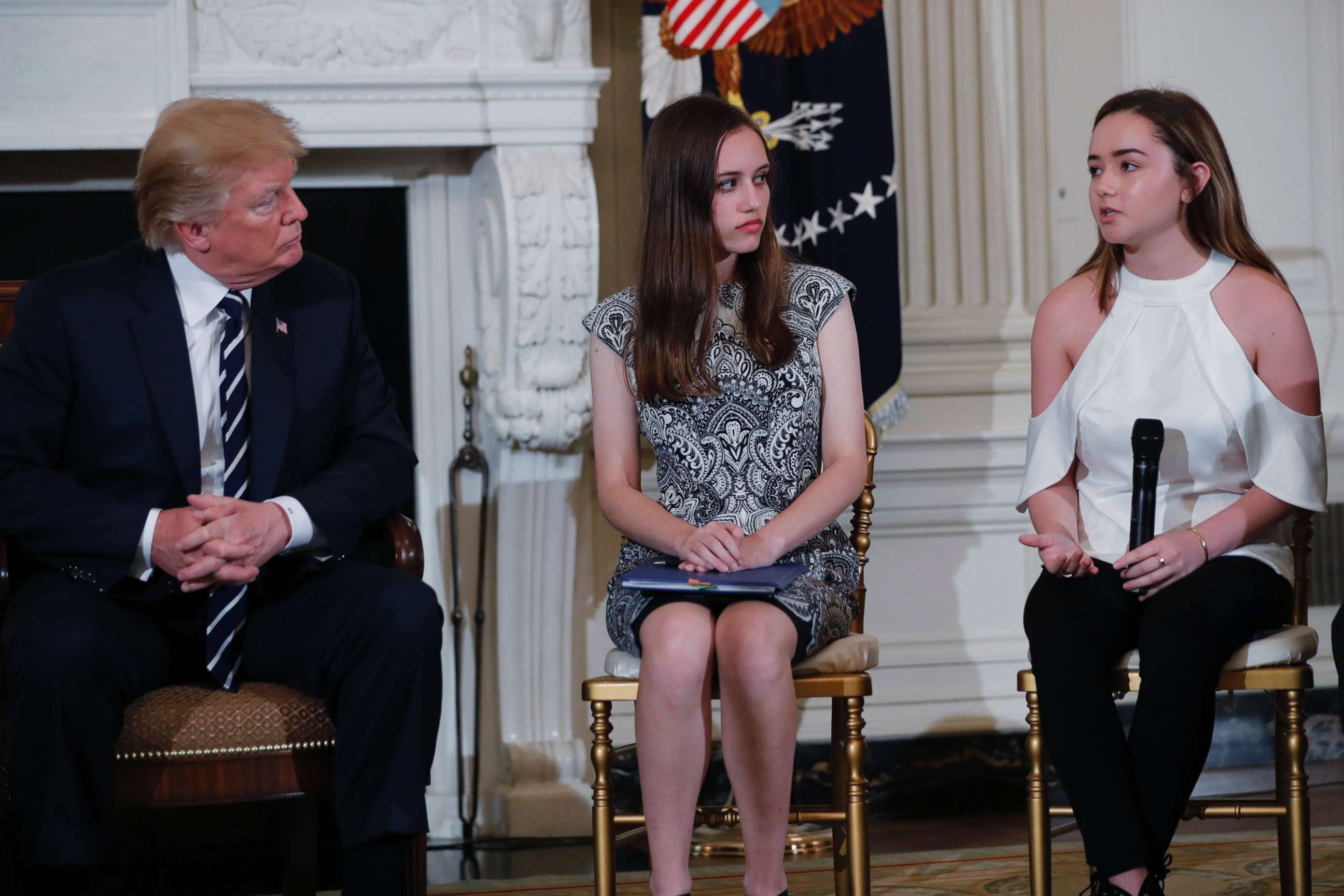
Zeif sat next to Nicole Hockley, the mother of Dylan, a six-year-old killed during a mass shooting at Sandy Hook Elementary School in Newtown, Connecticut in 2012 and near Darrell Scott, whose daughter, Rachel, was killed in yet another mass shooting years earlier in 1999 at Columbine High School in Colorado.
For those in the room whose emotion was still fresh and raw, people like Scott and Hockley, co-director of the group Sandy Hook Promise, offered the perspective of distance and policy prescriptions gleaned from years spent advocating on behalf of slain loved ones.
"This is not difficult. These deaths are preventable. And I implore you, consider your own children," Hockley said. "You don't want to be me. No parent does. And you have the ability to make a difference and save lives today. Please don't waste this."
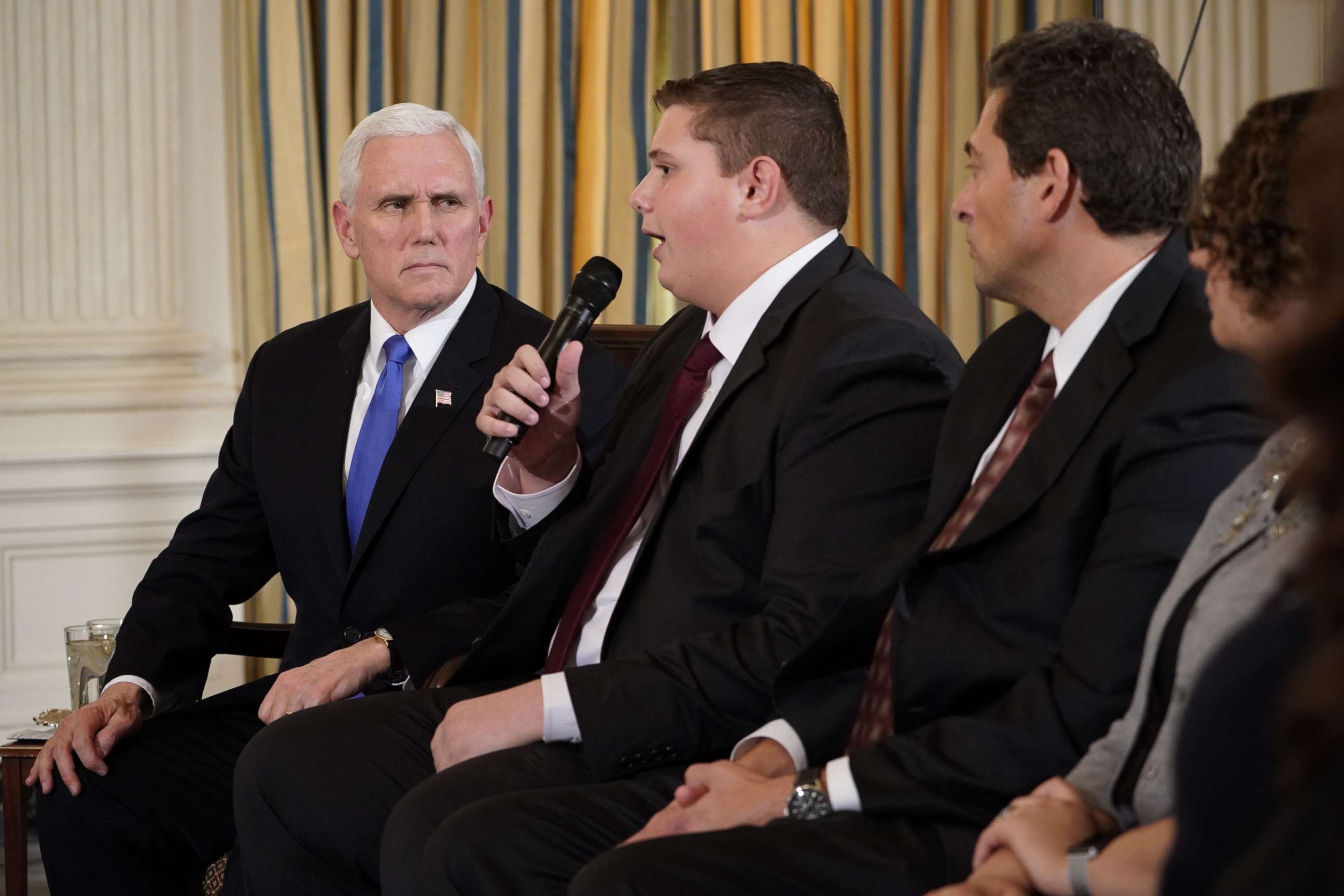
Cary Gruber, the father of Parkland student Justin Gruber, who survived the attack, also pleaded with the president.
“If you're not old enough to buy a drink, to buy a beer, you should not be able to buy a gun at 18 years old,” Gruber said. “That's just common sense. We have to do common sense. Please, Mr. Trump, these are things we have to do.”
"We cannot have our children die," he said. "This is just heartbreaking. Please.”
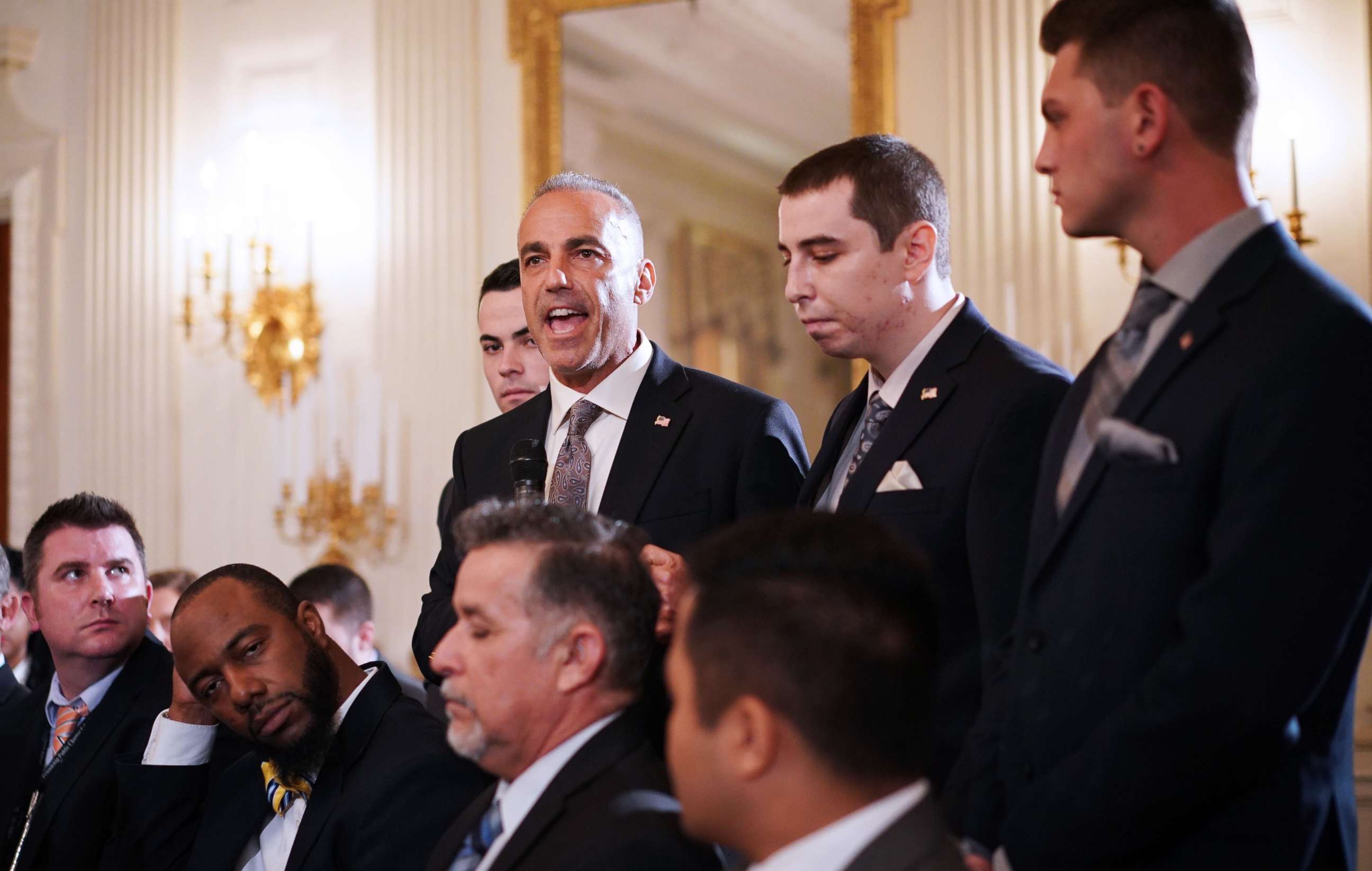
Andrew Pollack, the father of 18-year-old Meadow Pollack who died in last week’s shooting - and who had previously made comments supportive of Trump online - stood up with his sons and delivered an impassioned speech about the need to strengthen school safety.
“All these school shootings, it doesn't make sense. Fix it!” Pollack said. “... We should have fixed it! And I'm pissed. Because my daughter... She's not here. She's not here. She's in Fort Lauderdale King David cemetery, that is where I go to see my kid now.”
Pollack added, “It is not about gun laws. That is another fight, another battle. Let's fix the schools and then you guys can battle it out whatever you want. But we need our children safe.”
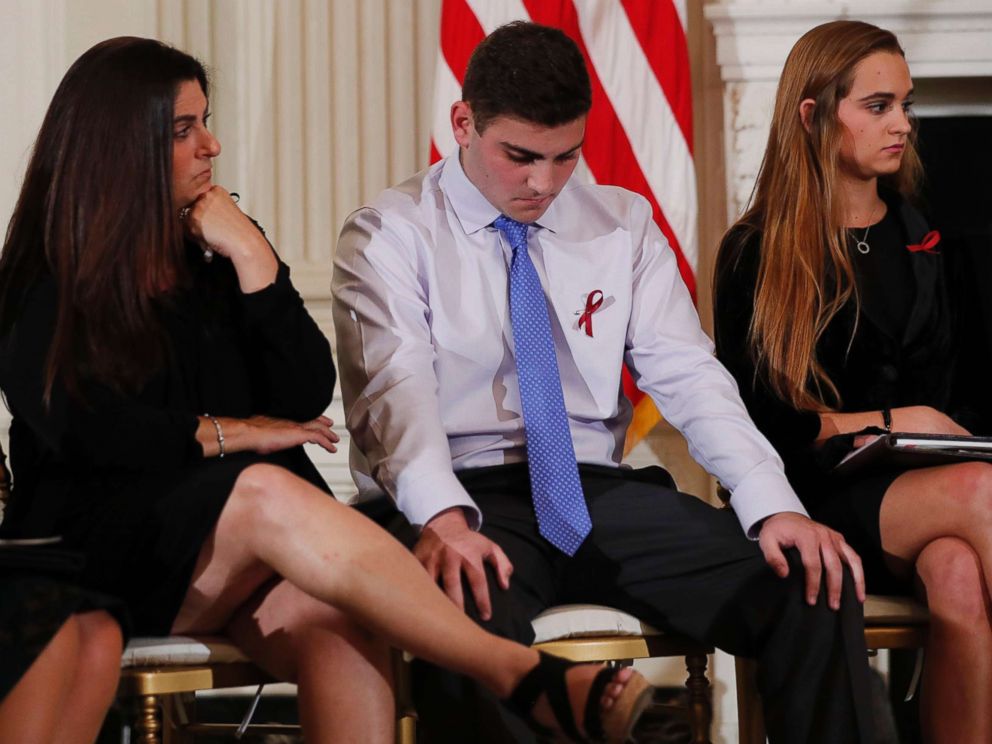
For his part, President Trump offered the gathering an opportunity to grieve and to be heard by the powerful. He was joined by Vice President Mike Pence and Education Secretary Betsy DeVos.
“We are going to do something about this horrible situation that’s going on," Trump said. "We will figure it out together.”
That something, he vowed, would include strengthening background checks.
The president's proposed 2019 budget could potentially roll back federal grants aimed at helping states report to the national background check system.
Trump also said he would soon be speaking with a gathering of the nation's governors and would discuss school safety.
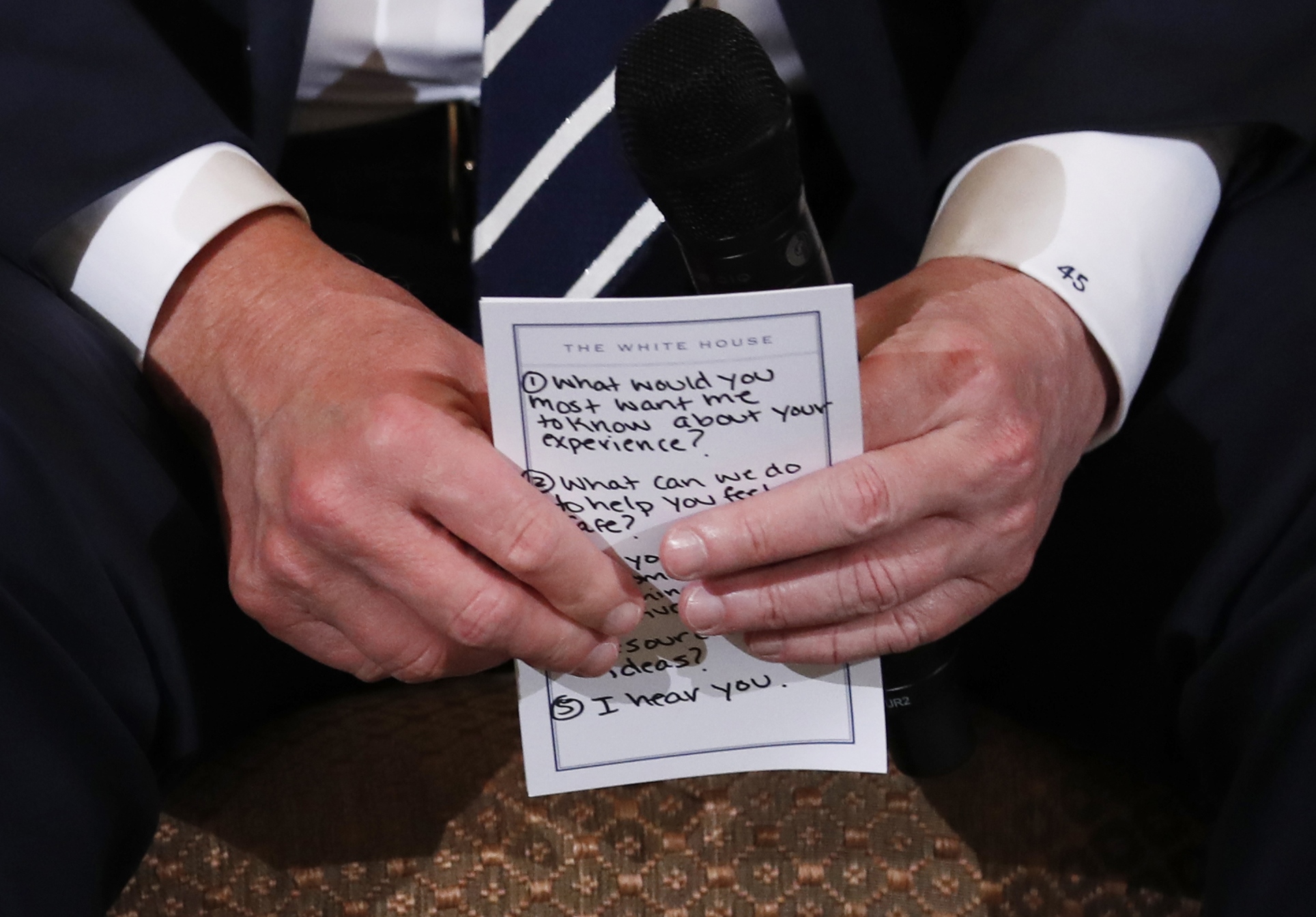
He also promised that solutions are on the horizon.
"Starting two minutes after this meeting we're going to work. We're going to settle this all together," he said. "We don't want others to go through the kind of pain you've gone through."
ABC News' Alexander Mallin contributed to this report.



